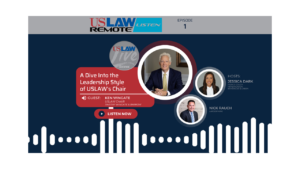USLAW NETWORK Chair Ken Wingate is the first guest on USLAW Live USLAW NETWORK officially launches USLAW… Continue Reading
Structured Settlements for the Defense…Yes, You Need Your Own Broker!
POSTED DECEMBER 21, 2015
Written by William Sleeth III of LeClairRyan and Don Engels, CLU, AIC, CSSC of Galaher Settlements for the 2015 Fall/Winter issue of USLAW Magazine.
We have all been there – significant case, large future damages, questionable liability. You may have brought up the concept of a structured settlement and plaintiff said “not interested.” Now the case has settled and plaintiff says “we would like to structure a portion of this settlement and we have a structure broker we would like to use.” How do you respond? You insist on retaining your own broker, and here’s why. First, a quick review of the tax law behind structured settlements is in order. The result of a properly structured settlement is an income tax-free stream of payments to the claimant and a release of future liability for the defendant. To achieve this result the structured settlement must comply with Internal Revenue Code Sections 104 and 130. In a nutshell Sections 104 and 130 say: there must be a physical injury, the claimant cannot have receipt or control of the money used to buy the annuity, and the defendant assigns away future liability to make payments and assigns away ownership of the annuity to a subsidiary of the annuity company by way of a qualified assignment…READ MORE.











